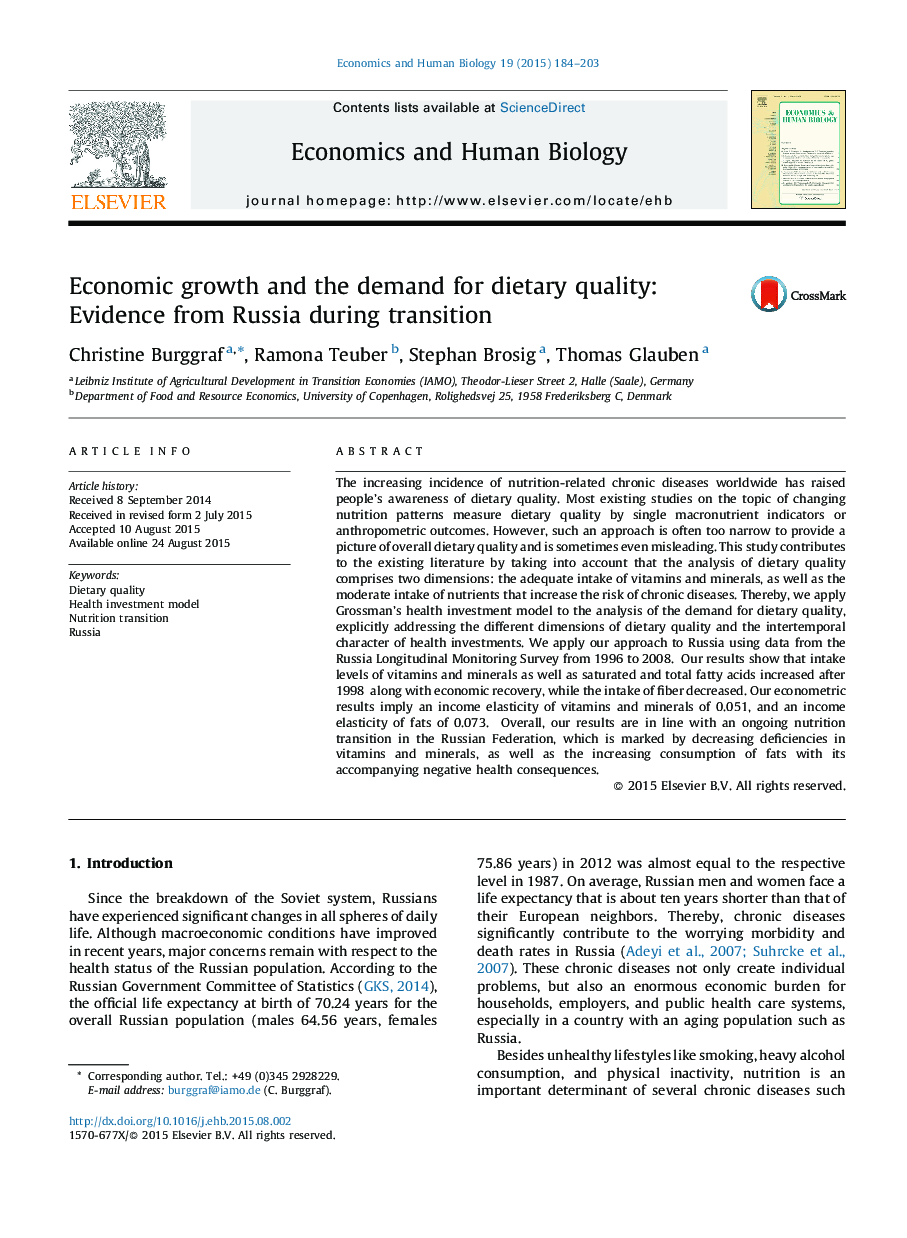| کد مقاله | کد نشریه | سال انتشار | مقاله انگلیسی | نسخه تمام متن |
|---|---|---|---|---|
| 5056941 | 1476560 | 2015 | 20 صفحه PDF | دانلود رایگان |
- We analyze the demand for dietary quality in Russia for the period 1996-2008.
- Our analysis of diet quality comprises healthy and unhealthy nutrients.
- With economic growth intake levels of both nutrient categories increase.
- Our results are in line with an ongoing nutrition transition in Russia.
The increasing incidence of nutrition-related chronic diseases worldwide has raised people's awareness of dietary quality. Most existing studies on the topic of changing nutrition patterns measure dietary quality by single macronutrient indicators or anthropometric outcomes. However, such an approach is often too narrow to provide a picture of overall dietary quality and is sometimes even misleading. This study contributes to the existing literature by taking into account that the analysis of dietary quality comprises two dimensions: the adequate intake of vitamins and minerals, as well as the moderate intake of nutrients that increase the risk of chronic diseases. Thereby, we apply Grossman's health investment model to the analysis of the demand for dietary quality, explicitly addressing the different dimensions of dietary quality and the intertemporal character of health investments. We apply our approach to Russia using data from the Russia Longitudinal Monitoring Survey from 1996 to 2008. Our results show that intake levels of vitamins and minerals as well as saturated and total fatty acids increased after 1998 along with economic recovery, while the intake of fiber decreased. Our econometric results imply an income elasticity of vitamins and minerals of 0.051, and an income elasticity of fats of 0.073. Overall, our results are in line with an ongoing nutrition transition in the Russian Federation, which is marked by decreasing deficiencies in vitamins and minerals, as well as the increasing consumption of fats with its accompanying negative health consequences.
Journal: Economics & Human Biology - Volume 19, December 2015, Pages 184-203
